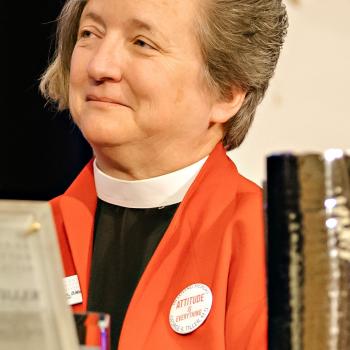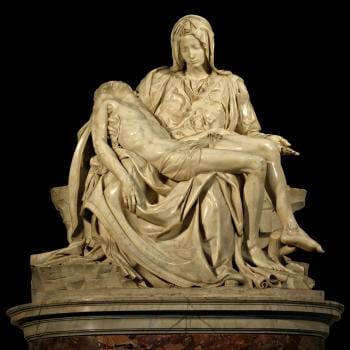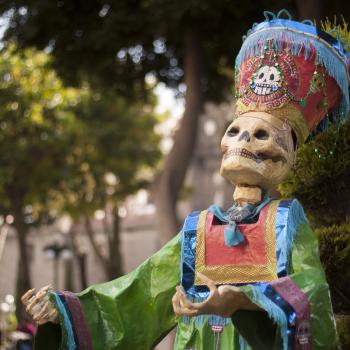I am still on a steep learning curve about the attraction of the Latin language in the liturgy.
I suggested that the liturgy was originally put into Latin so that more people could understand it, and wondered if the fact that it was in Latin today didn’t rather defeat that original purpose.
Someone was good enough to correct me and point out that the original Latin liturgical language was not the ‘vernacular language of the street’ but a form of courtly and formal Latin. I liked that explanation, because its nice to know that they chose a good type of language for the liturgy, but the answer didn’t really answer my main point because even if it was courtly language, the liturgy was still put into Latin so more people could understand it–not fewer, and the fact that not many people understand Latin around the world today seems to defeat the purpose. If we were to follow that line of argument today wouldn’t we use something in English speaking countries like Elizabethan English? For that matter, shouldn’t we use the Anglican Usage which is derived from Cranmer’s English?
Another reason Latin was to be preferred, I was told, was because Latin is more ‘mysterious’ and that Latin is better because, if you can’t understand it the Mass is more reverent and awesome.
This didn’t seem like a very good argument to me, and it turns out that those who hold this view are incorrect. The real reason Latin is better is a much more academic and intriguing argument. It has now been explained to me that Latin is better because it is one of the three ancient ‘sacred’ languages: Hebrew, Greek and Latin. If I understand it correctly the argument goes like this: “the incarnation took place at a particular place and time in history, and many things came together which were perfect in God’s timing. Galatians 4.4 says, “in the fullness of time God sent forth his Son, born of a woman.” Part of this ‘fullness of time’ was the fact that at this time these three ancient languages came together in one culture. Hebrew was the language of the Old Testament. Greek was the language of the New Testament, and Latin was the language of the sacred liturgy, and was to become the sacred language of the Church.
It is better therefore to have the liturgy in Latin.
Now I must be a total goofball still not to see the point, but this intriguing argument only raises more questions for me. For the argument to be convincing, shouldn’t it be consistent? Shouldn’t we therefore read the Old Testament in Hebrew and the New Testament readings in Greek?
If these three languages were so sacred, why did Jesus speak Aramaic? Shouldn’t Aramaic be one of the sacred languages? Indeed, when I go to celebrate Mass with my Maronite friends (who have a most ancient and venerable liturgy) they tell me with pride that the canon of their rite is in Syriac, which, they explain, is a dead language that is very close to, and derived from, Aramaic. Therefore, they say, glowing with an admirable pride, “It is only the Maronite liturgy in which the canon is said in the same language the Jesus himself said the words of consecration.”
Then I discovered that the Chaldeans also take pride in their most ancient liturgy which doesn’t use Syriac, but actually uses Aramaic, the same language that Our Lord spoke.
With what I’ve learned so far, if I’m voting for an dead, ancient language in the liturgy, the Maronites and Chaldeans get my vote.
You can see how confusing it all gets! Shawn Tribe over at New Liturgical Movement is pretty good on this stuff. Maybe he can shed some light on it all.











